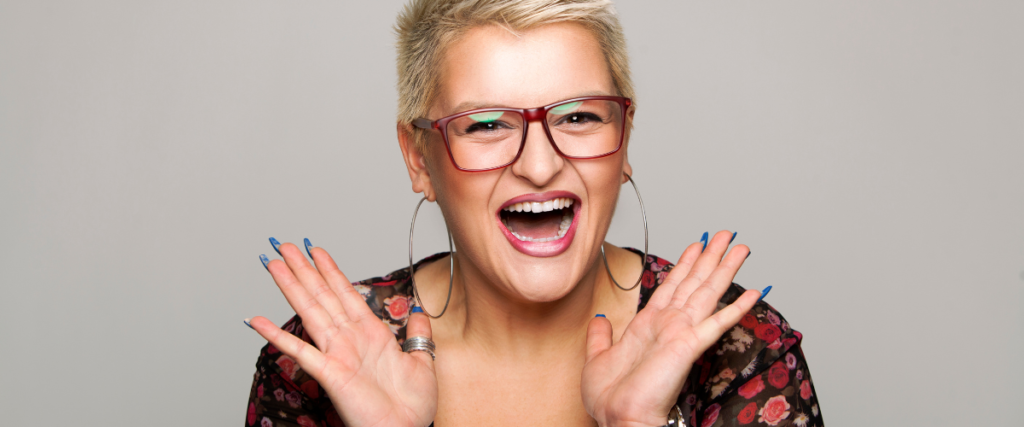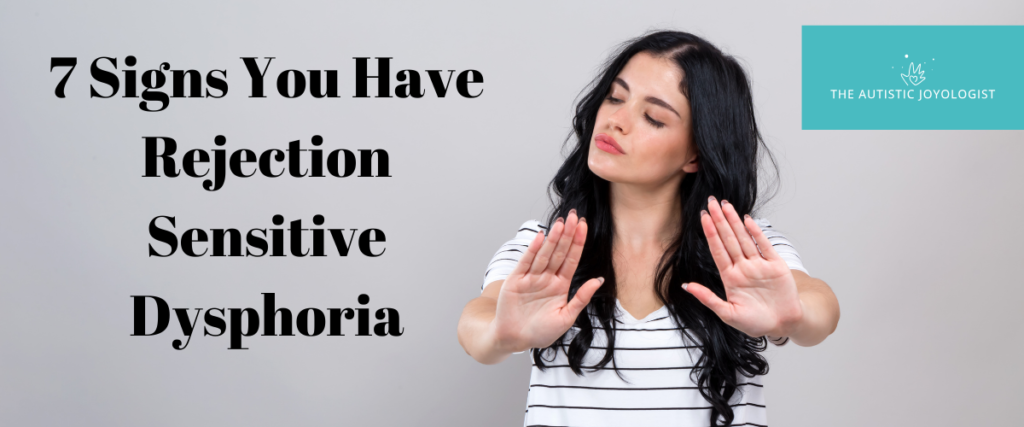Rejection Sensitive Dysphoria (RSD) is something I am all too familiar with! Before we go any further, this blog is linked to my in-depth blog on rejection-sensitive dysphoria, which you can read by clicking on the button above.
My other blog goes into a lot more detail about RSD, but as a whistle-stop explanation, RSD is an intense emotional response to perceived or actual rejection and criticism. While not exclusive to ADHD and autistic individuals, the overlap of neurodivergent traits can amplify and uniquely shape the experience of RSD.
I didn’t know RSD existed, until after my autism and ADHD diagnosis’. When I found out, my first reaction was one of relief. I had spent the majority of my life being told I was too sensitive, overly sensitive, and overly dramatic. The result of constantly being told that, was that I kept a lot of emotions inside, and they would eventually come out as what I now know to be meltdowns and periods of overwhelm. When my emotions were particularly high, I would sit on the floor and hit myself in the head with the palms of my hands, until the intensity of my emotions reduced.
But that didn’t stop the rumination and replaying of events and conversations, which would often see the feelings pop back up, or leave me in a whirl of negative self-talk. Discovering RSD existed helped me to understand myself better, exercise immense self-compassion, and find tools and strategies that work for me (on this note, the tools and strategies that work for me, may not be right for you, so I’d encourage you to do some research and try different things).

7 Signs of RSD
As with everything we talk about within The Autistic Joyologist, it’s important to remember that your experiences will be unique. If what you read below doesn’t sound exactly right for you, that’s OK – that doesn’t mean you don’t experience RSD, it just means your unique personal experiences are different.
I have always said that we, as autistic and ADHD women can have common traits, but how we experience them and how they show up in our lives, is dependent on so many different factors. We are not all the same! We are not a set of checklists and tickboxes!
Here are seven common signs that might indicate that you experience RSD:
Intense Emotional Responses: A seemingly minor critique or hint of disapproval can lead to overwhelming feelings of shame, sadness, or anger. These emotional reactions might seem disproportionately strong to the actual event.
Anticipating Rejection: You might avoid social situations or opportunities due to the fear of being rejected or misunderstood, even if there’s no clear reason to expect such outcomes.
Ruminating on Past Events: A single negative comment or event can replay in your mind for days, weeks, or even longer, affecting your self-esteem and self-worth.
Perfectionism: Driven by the fear of criticism, you might become a perfectionist, setting impossibly high standards for yourself to avoid any form of rejection or judgment.
Impulsivity in Responses: Faced with potential rejection, you might respond impulsively, either lashing out in defense or making hurried decisions to avoid feeling the sting of criticism. Or you might cry, and become upset.
Physical Symptoms: Intense emotional responses can manifest physically, from a racing heart to stomach disturbances or even feeling dizzy or light-headed during moments of perceived rejection.
Mood Swings: Due to RSD, your mood might fluctuate significantly throughout the day based on your interactions and perceived slights or affirmations from others.
Recognising the signs of RSD is the first step towards understanding and managing it. Whilst my other blog (link on the button at the top) goes into a lot more detail and science, let’s move on and look at potential ways to manage your Rejection Sensitive Dysphoria.

How To Manage RSD
As we’ve had 7 Signs, I feel it’s right to have 7 Tips to manage RSD! I like a matching number…don’t judge me!
RSD isn’t something that we can eradicate, but I do believe that bringing awareness to it and having some understanding around it, can be incredibly powerful. It certainly helped me to recognise it in myself and that meant that when it showed up, I was kinder to myself and I could do something about it.
Here’s some tips and strategies you could try:
Mindfulness and Grounding: Practising mindfulness helps you stay in the moment and reduces rumination. When feelings of RSD surge, grounding exercises can redirect focus and calm the mind. I like box breathing, which is breathing in for the count of 4, holding for 4, breathing out for the count of 4, and holding for 4.
Reality Check: Pause and ask yourself if the perceived rejection is factual or if it’s an assumption. Often, our interpretations might magnify a situation’s severity. Have you wrapped a bigger story around the feedback or comment that is there? I ask myself – “Is it real, is it based in fact, is it true?”. In most cases, it helps me to calm my ruminations and storytelling.
Seek Feedback/ask for clarification: Engage in open dialogue with trusted friends or family. They can provide an external perspective, helping you understand if your feelings match the situation. If you feel that you can, you can also ask for clarification at the moment – this will give you more information, rather than relying on assumptions.
Develop Coping Strategies: Breathing exercises, journaling, or even short walks can help manage immediate emotional reactions. Find what works best for you and have it ready as a tool.
Set Boundaries: If certain situations or individuals consistently trigger RSD, consider setting boundaries or limiting exposure, giving yourself time to heal and build resilience. If boundaries are a challenge for you, you might find this blog helpful.
Therapy and Coaching: Cognitive Behavioral Therapy (CBT) and coaching can provide tools and strategies to reframe negative thinking patterns associated with RSD.
Educate and Advocate: Understanding RSD and educating those around you can foster empathy and reduce misunderstandings. This empowers you and helps create supportive environments. Just sharing with others that you experience Rejection Sensitive Dysphoria can help them think about how they provide you with feedback.
Remember, managing RSD isn’t linear. Often, when we are tired and stressed, RSD can rear its head more frequently and with greater intensity. Thinking about RSD in the context of aligning your life so that it feels safe, calm, and fulfilling for you, will also help to reduce your Rejection Sensitive Dysphoria.
Celebrate small victories and practice self-compassion, recognising that you’re continuously learning and growing. Having a few tools and strategies to use can help, so that if one doesn’t work for you in the moment, then you have another one to hand.
And, remember that all feelings, thoughts, and emotions pass. They are all temporary. I like to think of the challenging times as clouds in the sky, and I just watch them drift on by, knowing that they are there for a split second of my life only.
The Benefits of Rejection Sensitive Dysphoria

Rejection Sensitive Dysphoria brings a lot of positive things with it too! The heightened emotional sensitivity that comes with RSD, when understood and harnessed correctly, can be a unique strength.
Check out my other blog on RSD to go into this in more detail. In my opinion, it’s about how we can reframe our Rejection Sensitive Dysphoria and harness it for greater happiness and success. Having RSD undoubtedly makes us more considerate, kinder, and compassionate individuals. We know what it feels like to have our feelings hurt, and we often go out of our way to make sure others don’t experience that in our presence. And that’s a beautiful thing.
The other thing to remember about feedback is that it’s one person’s opinion. It’s not always true, real, or based in fact. We can choose to listen and move on.
I hope you’ve enjoyed my blog on 7 Signs You Have Rejection Sensitive Dysphoria. I know from experience how challenging RSD can be, but it can absolutely be one of your strengths too.
If you’d like to take the first steps towards aligning your life, you might like to try my 30-Day Kick Start Alignment Challenge, which you can access HERE.
I’d love to see you over in our Facebook Community if you’re not already there. Click on the button below to join our supportive group for female entrepreneurs and leaders (or those committed to showing up fully in their lives!). We are UK-based, but you’re welcome to join if you’re not UK-based. Nikki x
PS. Have you taken my Success & Happiness Quiz yet? It’s super insightful, and you’ll get bespoke advice, based on your answers. Are you ready to find out if you’re living life for yourself, or others?? Then click to take the Quiz!
